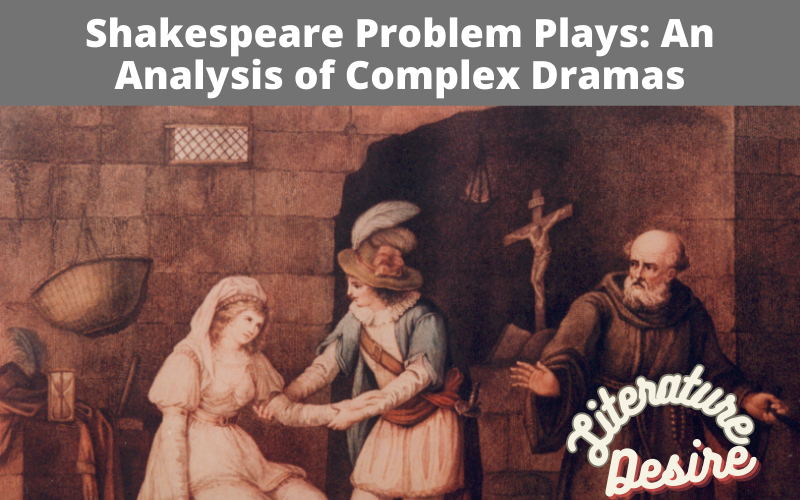Shakespeare Problem Plays refer to a specific group of William Shakespeare’s plays that pose challenges for scholars and critics to categorize.
These plays display a combination of elements from different genres and often raise moral, social, and philosophical questions.
In this article, we will delve into the intricacies of these problem plays, explore their characteristics, and shed light on their significance in Shakespearean literature.
Shakespeare Problem Plays: An Analysis of Complex Dramas
What Are Shakespeare ‘s Problem Plays?
Shakespeare Problem Plays are a collection of four plays by William Shakespeare: “Measure for Measure,” “All’s Well That Ends Well,” “Troilus and Cressida,” and “The Winter’s Tale.” These plays present complex narratives that blur the lines between comedy and tragedy, leaving audiences and scholars alike pondering their true nature.
Characteristics of Shakespeare Problem Plays
Shakespeare’s problem plays possess distinct features that set them apart from his other works. Here are some key characteristics:
Moral Ambiguity:
Problem plays often challenge conventional notions of right and wrong, showcasing morally complex characters and situations.
Tone: Shakespeare Problem Plays
These plays exhibit a shifting tone, oscillating between comedy and tragedy, creating a sense of unease and uncertainty.
Plot Complexity:
The plots of problem plays are intricate and convoluted, incorporating subplots, mistaken identities, and intricate relationships.
Exploration of Themes:
Shakespeare delves into profound themes such as justice, power, gender dynamics, and the complexities of human nature.
Analysis of Shakespeare Problem Plays
Let’s delve deeper into each of the Shakespeare Problem Plays to gain a better understanding of their unique characteristics and themes.
Measure for Measure
“Measure for Measure” explores the themes of justice, mercy, and morality. The play centers around the strict enforcement of laws in Vienna and raises questions about the balance between justice and compassion.
All’s Well That Ends Well
In “All’s Well That Ends Well,” Shakespeare explores themes of unrequited love, class differences, and the pursuit of personal happiness. The play challenges traditional gender roles and examines the complexities of romantic relationships.
Troilus and Cressida: Shakespeare Problem Plays
“Troilus and Cressida” is a tragicomedy that delves into themes of love, honor, and the futility of war. Shakespeare presents a cynical view of the Trojan War, questioning the ideals of heroism and the fickleness of human nature.
The Winter’s Tale
“The Winter’s Tale” is a play that traverses the realms of tragedy and romance. It explores themes of jealousy, forgiveness, and redemption, showcasing the transformative power of time and the complexities of familial relationships.
Conclusion: Shakespeare Problem Plays
Shakespeare’s Problem Plays offer a fascinating glimpse into the depth and complexity of Shakespeare’s work. These plays defy easy categorization, presenting audiences and scholars with moral dilemmas, complex characters, and intricate narratives.
By exploring themes that resonate with the human experience, Shakespeare continues to captivate audiences and maintain his status as one of the greatest playwrights in history.
Frequently Asked Questions
The term “problem plays” was coined by critic F.S. Boas in the early 20th century to highlight the challenges these plays present in terms of classification and interpretation.
No, problem plays are not considered lesser works. They offer unique insights into Shakespeare’s exploration of complex themes and his evolving writing style.
Problem plays defy easy categorization into a single genre. They combine elements of comedy, tragedy, and romance, blurring genre boundaries.
The themes explored in problem plays, such as power dynamics, morality, and the complexities of human relationships, remain relevant in contemporary society.
While the term “problem plays” primarily refers to the four aforementioned plays, some critics include other works like “Timon of Athens” and “The Merchant of Venice” in this category.
Problem plays challenge traditional theatrical conventions by presenting morally ambiguous characters, complex plots, and a blend of comedic and tragic elements, keeping audiences on their toes.



